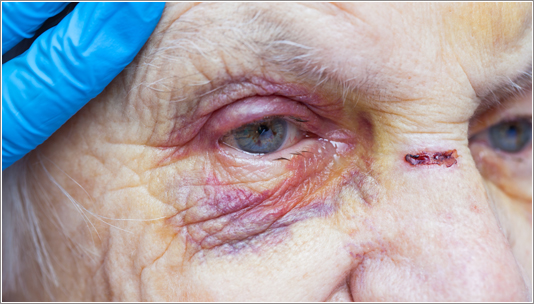

Adult Protective Services
May 22, 2018 | by the National Care Planning Council
All states have laws regarding the physical and sexual abuse of minors. Most states feel it is important to protect vulnerable adults from abuse as well. As a result most states have passed legislation to protect older individuals, mentally incompetent adults and severely disabled adults from abuse. The definition of abuse for adults is typically a little more broad than the definition for minor abuse and might include misconduct such as sexual abuse, emotional abuse, financial exploitation, active and passive neglect by caregivers and self-neglect which means an individual is failing to care for his or her own self needs. Most of these abuse descriptions are self explanatory; however for those who question it, here is an explanation of what active and passive neglect means:
"Active neglect is the willful failure by a caregiver to fulfill care-taking functions and responsibilities. This includes, but is not limited to, abandonment, deprivation of food, water, heat, cleanliness, eyeglasses, dentures, or health-related services. Passive neglect is the non-willful failure to fulfill care-taking responsibilities because of inadequate caregiver knowledge, infirmity, or disputing the value of prescribed services."
Vulnerable adult and elder abuse can occur in any setting and in recent years there has been much concern about the treatment of residents in nursing homes. But most abuse occurs in the home and is most generally perpetrated by family members. Estimates are that 5% to 10% of the elderly and vulnerable adults in America are suffering abuse. The public knows little about elder abuse at home because this kind of treatment goes mostly unreported. It is the so-called "dirty little secret" of caregiving. Workers in this field often refer to elder abuse as being like an iceberg; we are only seeing the tip of it and 90% of it is hidden from our view.
The term commonly used by most states to describe the department responsible for adult abuse is "adult protective services." But not all states use this term. A few states have put adult protective services under their social service, health or human service or children and family services departments. But most states have put protective services under the state aging units described above. This is because the Older Americans Act already requires services for elder abuse and also some funding. In addition, local area agencies on aging are in a good position to report abuse and help with abuse problems. Many states that have elder abuse laws combine legislative funding and other federal funding with Older Americans Act funding and give the responsibility for elder and vulnerable adult abuse to the state unit on aging.
State laws require that reports of abuse must be investigated. A few states require that anyone aware of elder or vulnerable adult abuse must report it to authorities. Failure to do so can be a criminal offense. But most states only require mandatory reporting from people or professionals who deal with a vulnerable adult population. Here is an example of one state's list of mandatory reporters.
- Medical professionals
- Employees of hospitals and home health agencies
- Social workers
- Coroners
- Law enforcement employees
- Adult or juvenile probation officers
- Department of Human Resources' employees
- Clergy
- Attorneys
- Mortuary or funeral home employees
- Employees of the facilities providing care for older persons
